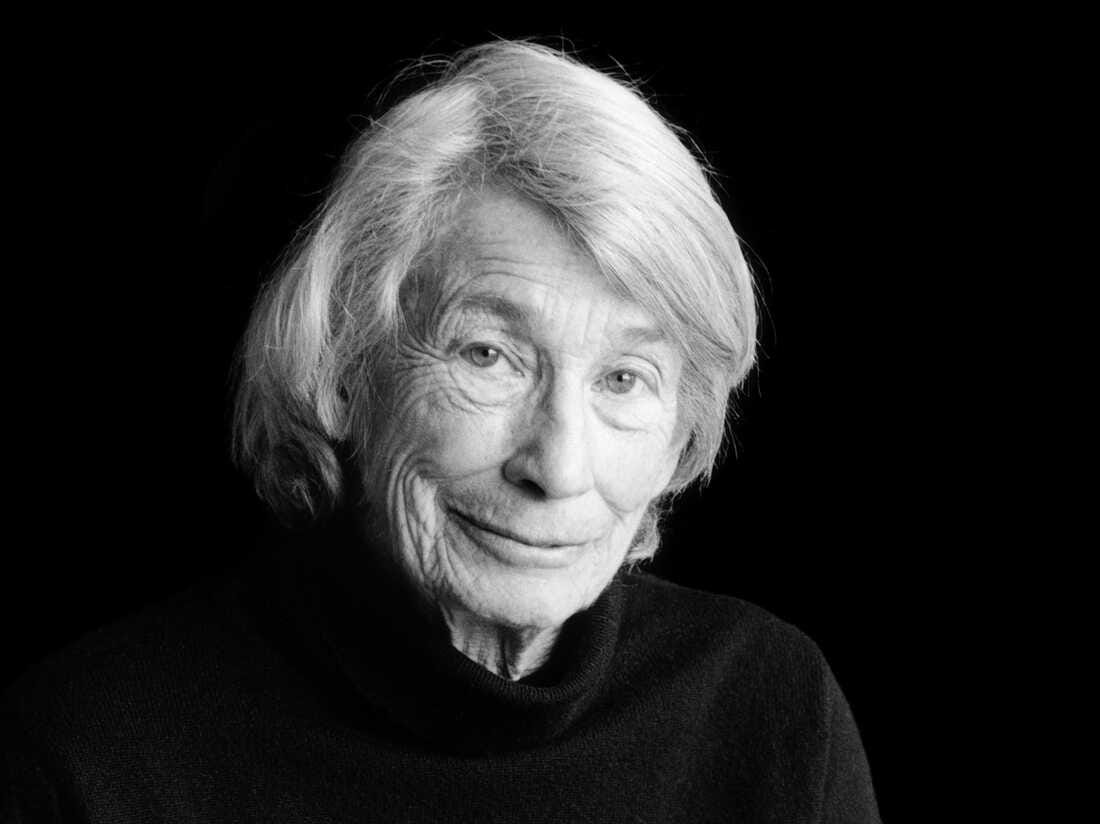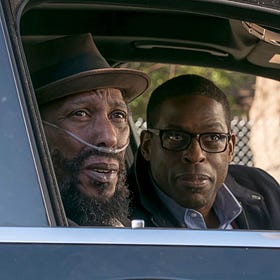Update: Yes, Netflix Steamrolled Mary Oliver's Estate, and Here's the Proof
In an exclusive statement to PopPoetry, Oliver's literary executor responds to Netflix's unauthorized use of "The Summer Day."
My hypothesis that Netflix had not properly secured the rights to use Mary Oliver’s work in Nyad has turned out to be sadly correct.
What Happened?
If you watch the recent biopic of Diana Nyad starring Annette Benning, Jodie Foster, and Rhys Ifans, you might think poet Mary Oliver’s work has been properly handled and credited in the film. But if you scrutinize the book cover for Oliver’s House of Light and the recording of Oliver reading “The Summer Day,” you’ll find that each has been slightly fudged or excerpted or manicured in ways that are designed to give the impression of propriety. In fact, Netflix did not properly license Oliver’s work at all.
For the full background on this story, check out this post from last month:
After my original post ran, I was contacted by Mary Oliver’s literary executor, who confirmed my suspicions that Netflix had not secured the rights to Mary’s work. In an exclusive statement, Bill Reichblum confirms Netflix’s overreach in Nyad:
“Thank you for bringing this to our attention. I, too, am troubled by the use of Mary Oliver’s poetry in the movie. Neither Mary’s literary estate nor the literary agency authorized or licensed the film’s use of “The Summer Day” or the use of Mary Oliver’s voice reading this poem. Now that this has been brought to our attention, we are in the process of determining how to address this.”
—Bill Reichblum, Literary Executor for Mary Oliver
This is disappointing, to say the least, but not surprising. The media goliath failed to secure proper licensure for the use of Oliver’s work in the film. Reichblum’s comment points toward potential future action on behalf of Oliver’s estate, which I would applaud.
Why must the late poet’s work be properly attributed and her estate remunerated? It’s not about money. It’s about the future.
Why It Matters
This is not a student filmmaker forgetting to attribute Mary Oliver—this is a $240 billion corporation steamrolling one of America’s greatest recently departed artists.
If Mary Oliver, one of our most well-known poets, can have her work used without the consent of her estate, what hope do younger, emerging, or marginalized poets have of retaining their rights to their work? If Netflix can act with impunity and brush off the pesky fact of intellectual property in this instance, where and how else can we expect their influence to show up in our culture moving forward?
This is not a student filmmaker forgetting to attribute Mary Oliver—this is a $240 billion corporation steamrolling one of America’s greatest recently departed artists. Netflix’s theft of her work needs to be decried repeatedly and loudly. Poets in particular often joke that there is no money in poetry and that our readership is small. That might be the case, but at this moment we have a chance to assert its value and validity on behalf of all poets (and artists more broadly) by calling out Netflix’s abuse of Mary Oliver’s work.
In an age of burgeoning AI, artists and makers of all stripes will need to forcefully assert their humanity and the value of their human-created artistic output. Netflix’s business model thrives on churning out content: they seem like a studio that’s unconcerned with how the sausage gets made. One could easily envision Netflix at the forefront of the production and distribution of content that obviates the need for actual human actors when the technology exists and if protections for actors fail to materialize.
Just as Diana Nyad herself continues to use Oliver’s work in ways that Oliver herself was not quite comfortable with, so too has Netflix felt justified in treating Oliver’s poem as something they could just use to add to a shot, like a cheap lamp from a thrift store. They just took it. When politicians use songs without permission, all hell breaks loose. Headlines multiply. What about when the same thing happens with poems?
Will we raise our voices?
If we allow corporations to assert that the rights of individual artists are unimportant, we are willfully entering into a contract with the destruction of the human voice.
What’s Next
I join Reichblum in decrying Netflix’s actions and encourage you to do the same. What can you do? For now, share this article, tell interested folks about this issue, or consider canceling your Netflix subscription in protest. I’ve canceled mine. They’ve even got a little box where you can explain why you’re canceling.
We have to stand up for the rights of artists not because we all must make money and profit from our work (though we certainly ought to be able to) but because if we allow corporations to assert that the rights of individual artists are unimportant, we are willfully entering into a contract with the destruction of the human voice and the human experience.
Perhaps poetry won’t always occupy the relatively small space in society that it does now. But if we would like to flirt with our annihilation as writers, all we need to do as a first step is look the other way as Netflix fails to license the work of the esteemed Mary Oliver.
Related
Mary Oliver Once Asked Diana Nyad Not to Use Her Poem. Then It Ended Up on Netflix.
The Summer Day Who made the world? Who made the swan, and the black bear? Who made the grasshopper? This grasshopper, I mean— the one who has flung herself out of the grass, the one who is eating sugar out of my hand, who is moving her jaws back and forth instead of up and down—…
This Is Us and the Case of the Disappearing Poet
Do you read and enjoy PopPoetry every week? Have you become a paying subscriber? If you appreciate the labor of love that it takes to bring this work to life, consider upgrading your subscription! Early subscribers get a great discount. This Is Us recently began its farewell …









you're a whistleblower!!!
Terrific work, keep it up!